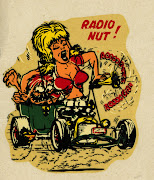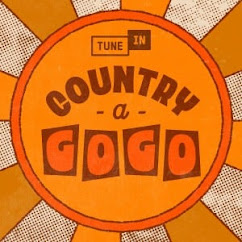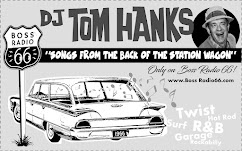Thanks for checking out CDJ month, everybody!
TuneIn
Thursday, February 28, 2013
Fare thee well, Jack Dupree!
Thanks for checking out CDJ month, everybody!
Posted by Mr. Soul Motion at 10:58 AM 1 comments
Labels: Alberta, Champion Jack Dupree, Dr. Filth
Wednesday, February 27, 2013
Jack Dupree and King Curtis live on stage in Montreux
As CJD month winds down, here's a concert appearance from Montreux, Switzerland in 1971. Check out Aretha in the audience in the red dress!
This was released on LP as well, but it's really the sort of thing YouTube was invented for.
Posted by Mr. Soul Motion at 10:58 AM 1 comments
Labels: Aretha Franklin, Champion Jack Dupree, Cornell Dupree, Dr. Filth, King Curtis
Green Mosquito
Posted by Debbie D at 7:50 AM 2 comments
Labels: American Bandstand, Debbie D, Tune Rockers
Monday, February 25, 2013
Somewhere On Skid Row: Hobos, Bums & Other Urban Outdoorsmen
Posted by Phil X. Milstein as The Silent DJ at 11:08 PM 2 comments
Champion Jack Dupree and T.S. McPhee: Groundhog in the Cabbage Greens
One of the most unusual recordings of Champion Jack's career was made in 1967 with T.S. McPhee from the Groundhogs. The 'hogs had backed up Champion Jack on a 1964 tour, and McPhee played on Champion Jack's first Decca recordings, alongside Eric Clapton and John Mayall. When CDJ was signed to Decca blues spinoff writeoff Blue Horizon in '67, somebody had the bright idea to pair Champion Jack's voice with solo guitar accompaniment.
Jack doesn't play piano on these recordings at all - it's just him and McPhee's acoustic guitar. The result is unique in the British-Blues-Personality-Plays-With-Blues-Legend genre, and it's a very pleasant listen. The songs are all short, and while some of them are readymades, they sound different than CDJ's usual readymades. Dupree's sounds warm and engaged, and McPhee is neither to staid or showoffy.
The recordings basically stayed in the vault until Ace released them on CD in 1997. A 45 of "Get Your Head Happy" came out in the late 60s in a limited white label only run.
You can hear the whole thing on Spotify.
The Snow Is on the Ground
Posted by Mr. Soul Motion at 8:46 PM 0 comments
Labels: Champion Jack Dupree, Dr. Filth, Groundhogs, T.S. McPhee
Saturday, February 23, 2013
Champion Jack Dupree - with no pants on!
Posted by Mr. Soul Motion at 12:15 PM 0 comments
Labels: Champion Jack Dupree, Dr. Filth, Fats Waller
Friday, February 22, 2013
Champion Jack splits the states
 |
| Dupree with pianist Curtis Jones and some unknown guide |
Jack eventually moved to Switzerland, then Denmark, the UK (where he got married for the third time), then Sweden, and finally Germany. He'd record dozens of records while in Europe, and many of them would have songs expressing how happy he was to be out of the states.
There are numerous examples of Jack's sorrow over the condition of race relations in the states, including his eulogy to Martin Luther King and a sorrowful live cut called "Black and White Blues" (where he actually tells his European audience that they should be psyched to be white, making him one of the ballsiest of the blues revivalists of the late 60s playing to white college kids with romantic ideas of southern poverty).
Two non-youtoobabble examples I'll leave you with are the terribly sad "Poor Poor Me" and "I'm Happy to Be Free". "Poor Poor Me" was cut in the Mid-60s for the first of his "jam with the popular British guitarists album", From New Orleans to Chicago, which featured John Mayall, Eric Clapton, and T.S. McPhee. "I'm Happy to Be Free" was cut for a relaxed Mickey Baker session in the late 60s and appeared on the GNP LP of the same name.
Jack would not return to the states until the late 80s, when he recorded a couple of albums for Rounder in New Orleans. He died in Germany in 1992.
"Poor Poor Me"
"I'm Happy to Be Free"
More thoughts on Copenhagen on "Roll Me Over Roll Me Slow"
Posted by Mr. Soul Motion at 12:44 PM 0 comments
Labels: Champion Jack Dupree, Dr. Filth, Mickey Baker
A' Peelin' Music! (mp3 mix)
Curb-Service - Billy Dee & the Super-Chargers
Bulldozer - Les De Merle & his Band
Goofin' - Robbie Robinson Orch.
Gibraltar Rock - The Rockets
Rat Trap - Ralph Grasso
Take it off!
Posted by J.R. Williams at 12:25 PM 1 comments
Wednesday, February 20, 2013
Champion Jack Dupree: Babs Gonzales and the Mother in Law Blues
Before we move to Europe with Champion Jack Dupree, I want to do a quick clean-up on a few stray tracks lying around that I haven't had a chance to note yet. Specifically I want to talk about Babs Gonzales.
Babs Gonzales was a jazz and jive singer who lived in New York City and did the bulk of his recordings in the 40s and 50s. His style of jive was less knocked out and random than, say, Slim Gaillard (he even wrote his own dictionary of jive much like Gaillard's published-on-Ichiban-somewhere Dictionary of Vout), and he eventually ended up in the weird world of vocalese, managing James Moody and no doubt sharing ideas with Eddie Jefferson and King Pleasure, occasionally subbing for Mel Tormé at gigs. Champion Jack seemed impressed enough with his rap to incoprorate some of his nonsensery into his own introductions.
The two collaborated on the first side of the only Gonzales KING 45, "House Rent Party". Apparently Babs crashed a Dupree session to lay down this tale of crashing/mooching his way through a house party. Which, believe it or not, gets busted. Dupree lays down the piano on this cut.
Posted by Mr. Soul Motion at 3:44 PM 2 comments
Labels: Babs Gonzales, Champion Jack Dupree, Joe Tex, Slim Gaillard
Monday, February 18, 2013
Champion Jack Dupree: Blues from the Gutter
In internetese:
 |
| makes |
 |
sound like |
That Blues from the Gutter was one of the first blues LPs Jones heard and was a huge influence on his playing is documented in several sources. But a description of his first time hearing the record is documented in the book Foundation Stone, by Graham Ride, a friend of Jones' in Cheltenham, and apparently the guy who introduced him to the record.
A description of that event, along with a good breakdown of Blues from the Gutter track-for-track, can be found in an excerpt from the book from the author's website. The upshot of Ride's thesis is that before Ride played Jones BFTG* he was something of a trad/jazz snob, but after hearing the record he is a blues convert, saying more than once, "I just have to play this stuff . . . what a sound."
 |
| He got the habit |
 |
| But the 45 sure is purty |
Posted by Mr. Soul Motion at 11:47 AM 4 comments
Labels: Brian Jones, Champion Jack Dupree, Dr. Filth, Jerry Wexler, Rolling Stones
Sunday, February 17, 2013
The House Where Jerry Byrd Lived
Byrd (1920 - 2005) made a name for himself as one of the nation's top (non-pedal) steel guitar talents in the 1940s and '50s. He spent time playing in Ernest Tubb's Texas Troubadours before departing to join up with Red Foley and play steel in his band for several years. In the early '60s, he began exploring Hawaiian music and recorded several LPs in that vein. Byrd eventually relocated to Hawaii in the late '60s and remained there until his death.
Here's a track from his 1964 Monument LP, Admirable Byrd.
Jerry Byrd - Theme For A DJ (2:06)
Posted by Greg G at 10:37 PM 1 comments
Friday, February 15, 2013
Champion Jack Dupree: I want all you folks to gather around this jukebox . . .
In 1956 Jack packed up his piano and moved over to RCA subsidiary Groove/Vik, where he continued to rack up the classic 7" platters. His only 45 on Groove was a sequel to "Walkin' the Blues". This time Jack is joined on his walk - and his retreat from mother-in-laws* - with Teddy "Mr. Bear" McRae, I guess figuring with Mr. Bear's radar they'll remain undetected as they clip and clop.
 |
| Lotsa killer, some filler |
Whereas "Shim Sham Shimmy" gains most of its power from its guitars, "Old Time" is all about the drums, the piano and the crazy stuff Jack is saying. And Gene Moore's drums. The drummers on all of Jack's Vik recordings is either Willie Jones or Gene Moore, and even more than the guitar players they are the secondary stars of the sessions.
And just because I can't quit, here's a couple of Larry Dale solo cuts, backed by Dupree and Mickey Baker. Both were unissued by Groove in the 50s. Enjoy.
*A few words about Dupree and mother-in-laws. Nobody this side of Ernie K-Doe made more musical hay about the notion of the bossy, fear-inducing mother-in-law than Jack Dupree. I was going to, at one point, post a compendium of every Dupree track that mentioned his mother-in-law troubles, but I gave it up. As they say in bad e-Bay/Craig's List record lot auctions, "too many to list." Anyway, considering that Jack was on mother-in-law rants since way back in the 40s and K-Doe didn't have his hit 'til '61, I think it's safe to say that's yet another way he had a profound influence on New Orleans music.
* Then again, I can't do the "Clapping Song" so maybe I am just instructionally challenged.
*To continue with the theme of Jack's left hand, the break he throws down right after he says "Last time now" is one of his most thrillingly chaotic.
*word to the wise - even though these cuts were not issued originally (they do appear on the Charly LP Still Groove Jumping), Jazzman released the above cuts as a 45 as a part of their Jukebox Jam series.
Posted by Mr. Soul Motion at 5:45 PM 0 comments
Labels: Champion Jack Dupree, Dr. Filth, Gene Moore, Larry Dale, Mickey Baker























